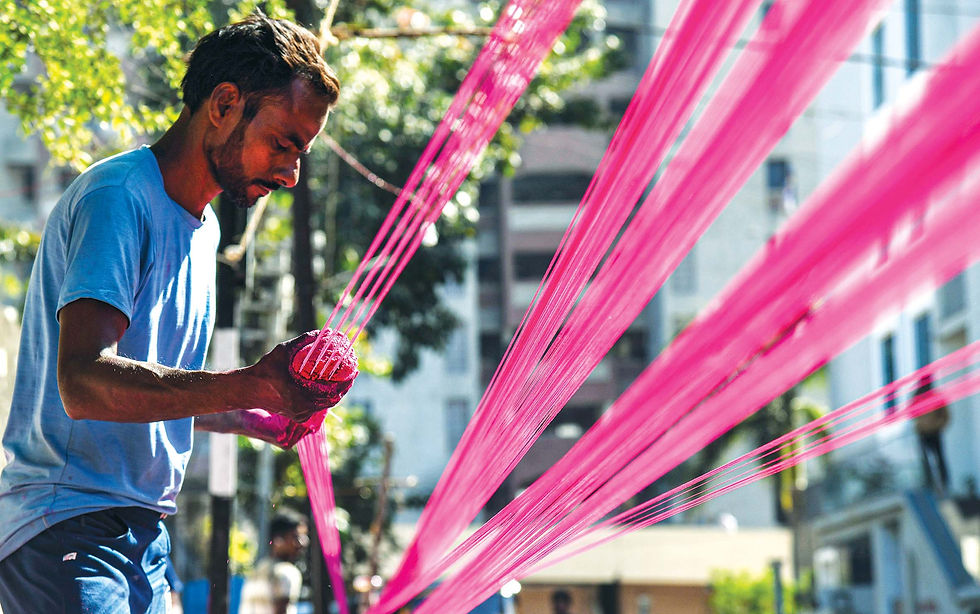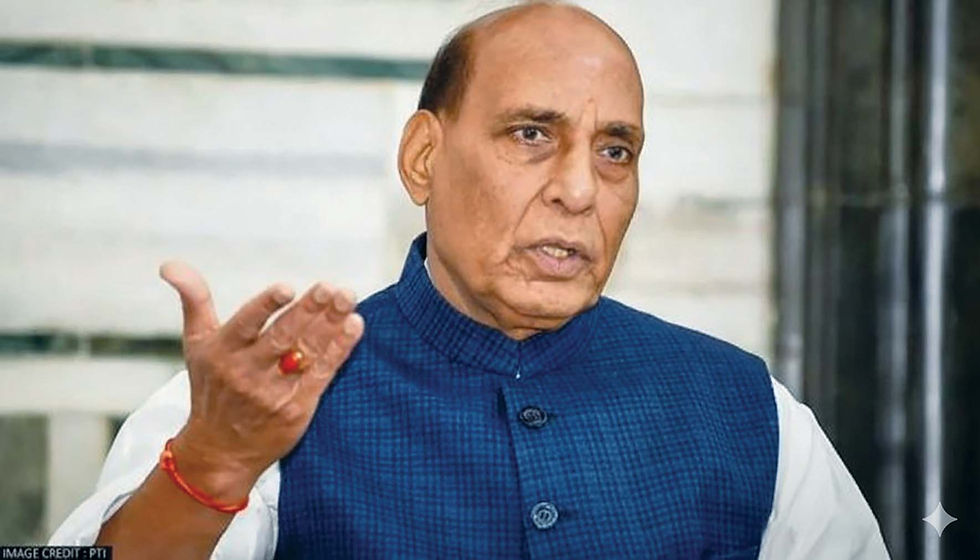The Elusive Terrorists: Why it Takes Time, Toil, and Toll to Get Them
- Brigadier AS Ranade, VSM (Retired)

- May 15
- 3 min read
In the 2nd and final part of this article, we explore the operational realities, legal constraints, and moral dilemmas faced by our security forces as they track, confront, and neutralise terrorists, often at great personal cost.

In villages and towns, intelligence is the key to success. Without intel, terrorists can merge with locals. The hideouts are innovatively constructed in the safe houses and are impossible to find without specific inputs from a source. Sources are not easy to cultivate and are outnumbered by the Over Ground Workers (OGWs) who help terrorists hide and survive despite relentless operations. Maintaining surprise is a challenge since the movement of security forces from their operating bases is monitored by OGWs, who give early warning to terrorists. Technical intelligence, radio communication, and mobile phone tracking are being exploited extensively by security forces and have had considerable success. However, the use of innovative means and apps to communicate, minimising mobile and radio calls by terrorists and OGWs, makes it difficult for the security forces to track them. Handling adverse situations like stone pelting by irate mobs who intentionally interfere during ongoing operations is the most complex of the challenges and needs very mature and calculated handling. Due to excellent coordination between the Army, JKP, and CRPF and SOPs that have stood the test of time, security forces have been tackling this challenge with a firm and calibrated response. Despite all these limitations, security forces have successfully zeroed in and eliminated thousands of terrorists over the years in villages and towns.
Be it day or night, forests, mountains, or the valley plains, security forces cannot fire without any positive identification of an armed terrorist. And that, too, only after giving him a fair chance to surrender. Security forces are, after all, bound by the law of the land and fire only in retaliation and in self-defence. The decision dilemma to open fire or not causes a few seconds of delay, which is advantageous to the terrorists. The decision dilemma could also be because of the challenge that identification of friend or foe poses, especially at night, since security forces are wary of the presence of other friendly detachments in close proximity.
Terrorists, on the other hand, have no confusion in their minds and, with no rule of law to respect, always have the first-mover advantage. Soldiers are accountable and stand scrutiny post-encounter. The credibility of an encounter is established only with an FIR filed by the unit along with the handing over of seized weapons and ammunition. Police follow it up with an investigation, dispose of the terrorists' dead bodies, and later close the case as per law.
Ideally, terrorists should not be able to infiltrate and be eliminated along the IB or the LC. However, security forces do not operate in an ideal environment. Given the challenges explained earlier, some terrorists make it successfully to their destination. Terrorists who make it to the hinterland or the locally trained ones who take up arms due to radicalisation should ideally not survive for long either, even if they are lying doggo. In the aftermath of a surprise strike by them to kill security forces or civilians, they should be eliminated within 24 to 48 hours. But various factors, as explained in this article, contribute towards terrorists remaining elusive for a long period till security forces finally get them. And get them at the cost of time, toil, and sometimes a costly toll of supreme sacrifice of brave soldiers and officers who refuse to give up.
We are a responsible and credible nation. It was amply demonstrated once again during Operation Sindoor for the world to take note, despite extreme provocation by Pakistan. Our security forces are motivated, well-trained, and disciplined. Determination and perseverance of our security forces ensure that justice is always served to the terrorists, even if delayed. Mohammad Umar Farooq, the Pakistani Pulwama bomber, was killed in an encounter, 43 days after the attack on the CRPF convoy.I urge my countrymen to have faith in our security forces and support them.
They shall never fail to deliver. The entire nation has just witnessed the unfolding of Operation Sindoor and what our defence forces are capable of. Justice may be delayed, but it shall never be denied to the elusive terrorists. Pahalgam killers shall also meet the same end. Time will tell.
(The author is an Indian Army veteran and Vice President CRM, ANSEC HR Services Ltd. He is a skydiver and a specialist in Security & Risk Management. Views personal.)





Comments